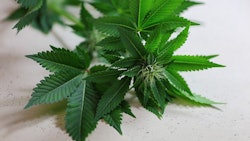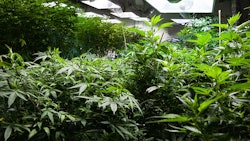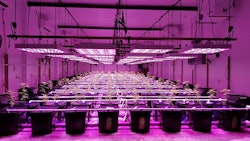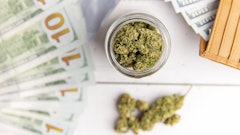
Name: Jason Smit
Location: Washington and Oregon
Title: Co-founder and Cultivation Manager, Avitas
Cultivation type: Indoor
Can you share a bit of your background and how you and your company got to the present day?
You bet! I learned how to grow starting in the early ‘90s by reading High Times and practicing a lot. Growing cannabis allowed me the freedom and flexibility to put myself through college. I obtained a bachelor’s in physics, which led to getting a job in the aerospace field. When legalization became imminent, a friend of mine, Adam Smith, contacted me and we decided to start a company in Washington. It’s been an exciting, challenging and rewarding experience. In Washington we cannot be vertically integrated, so we believe our success is a result of delivering exceptional products to our customers. That success led to the opening of another operation in Oregon, and we look forward to bringing the Avitas brand to other states soon.
What tool or software in your cultivation space can you not live without?
Ph and TDS [total dissolved solids] meters are crucial to your plants’ health. I consider growing without those tools to be like driving with your eyes closed.
What purchase of $100 or less has most positively impacted your business in the last six months?
This is a hard question. I’m going to go with the temperature and humidity monitoring hub we recently purchased. It connects with several sensors around the building. You can pull up real time and history data on an app on your phone anywhere you are, and also set up alerts. Good stuff: inexpensive, simple, highly useful.
What cultivation technique are you most interested in right now, and what are you actively studying (the most)?
I am most interested in a hybrid technique that combines the best the organic world has to offer with the best growing technology in lighting and environment.
I’m studying terpene profiles and how that impacts the high you get from each strain. The organic practices have really brought out the terpenes in our strains. It’s funny to learn that terms like sativa and indica are meant to describe plant types but have been falsely used to describe the highs of the strains. I think with more scientific knowledge and consumer education, we will change how we think and talk about the effects of the strains.
How has a failure, or apparent failure, set you up for later success? Do you have a “favorite failure” of yours?
When we initially started out in the legal arena, there was a lot of trading of strains going on to get a variety of popular genetics. Little did we know at the time we were also trading unknown pests, some of which you can’t see with the naked eye. Because we cannot use ... chemical-based pesticides that traditional agricultural industries use, we all had to step up our natural IPM strategies to deal with these problems to avoid crop loss, but not without a few failed attempts. I believe this makes our products cleaner and safer than the produce you buy at the grocery store. Large scale sustainable and responsible growing practices are not only a success for us, but it is a major success for our industry. Looking back on that experience, I really believe those struggles have made us much better.
A “favorite failure” of mine would be the time someone accidentally bumped into a timer, which broke a pin on the dial. We didn’t find out until a couple weeks later that our lights were turning on for 15 minutes in the middle of the dark period which caused the buds to stretch oddly.
What advice would you give to a smart, driven grower about to enter the legal, regulated industry? What advice should they ignore?
First, they should have work experience in another field. At the end of the day, growing cannabis is just like any other job. If you can’t handle the day-in/day-out grind, this is not for you. Look for professional and passionate people to work with. The best managers will take the time to share all their knowledge with you and help you grow professionally.
If you find yourself working for someone who guards their secrets closely, or you find out there are shady things going on, you should find another job.
How do you deal with burnout?
By taking the time for myself to reset mentally. Physical activity helps a lot.
How do you motivate your employees/team?
I think it is important to connect with each employee on a personal level. Listen to them and respect their thoughts and ideas. You still must maintain professional boundaries, and it is a balancing act. But once you really invest in the individual, you find that motivating them becomes easier. It’s also fun to schedule activities outside of work. A BBQ or after-work outing can improve morale for sure.
What keeps you awake at night?
I still have nightmares about pests. But what worries me the most are thieves. This is still a cash industry, and there is an incentive for unscrupulous folks. Employee risk is the worst, but if a retailer gets ripped off they can restock their shelves the next day practically. But as a producer/processor, it could take us months to build lost inventory back up. Our elected officials need to step up and reschedule this plant. Alcohol used to be illegal, but nobody is ripping off breweries.
What helps you sleep at night?
CBD, of course. But what really makes me happy is positive customer feedback. That makes all the hard work and stress worth it!
























